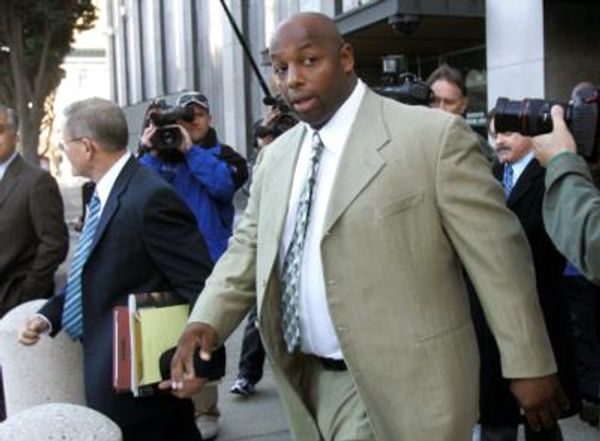
Hong Kong (AFP) - Crude extended the week's losses Thursday, while the euro struggled to recover from 20-year lows, and while stocks bounced from early losses recession fears continued to cast a pall across trading floors.
Expectations for a contraction in some of the world's leading economies, including China, where a new Covid-19 flare-up has generated angst, have increased in recent weeks owing to central bank interest rate hikes aimed at taming decades-high inflation.
The surge in inflation has been caused by soaring energy costs and rising post-lockdown demand, but observers said concerns about a contraction -- along with signs that consumers were being put off by high prices -- were weighing on the oil market.
Both main contracts were down more than one percent Thursday and have fallen about 10 percent this month.They are now below $100 for the first time since April.
Data on Wednesday showed US demand appeared to be waning as stockpiles rose, confounding expectations for a drop, while there are also some concerns that the China outbreaks -- including another spike in Shanghai -- could see major cities put into lockdown again.
Still, Vandana Hari, of Vanda Insights, said: "There isn't much rational assessment going on -- it's panic selling.
"The fears may not end but could get brushed aside when supply constraints are back to the fore.The market balance is tight."
While the drop in prices could temper inflation and give central banks some room to ease up on their rate hike cycle, the Federal Reserve remains on course for several more increases.
On Wednesday, minutes from its June policy meeting indicated officials were set for a second straight three-quarter-point rate hike this month, saying they were worried "inflation pressures had yet to show signs of abating".
They also noted a need to maintain credibility among Americans, saying there was "a significant risk...that elevated inflation could become entrenched if the public began to question the resolve of the Committee".
"It was clear from the minutes that the committee members remained highly focused on culling inflation, even if it was at the expense of a sharp economic slowdown," said Jeffrey Halley at OANDA.
"The minutes touched on the need for credibility and as such, I believe there will be no wimp-out by the (policy board) at the end of this month, as that would achieve exactly the opposite, plus interest."
Johnson under pressure
Despite the prospect of higher borrowing costs, Wall Street ended higher.
And Asia rose in the afternoon thanks to bargain-buying and a pick-up in tech firms following a positive earnings forecast from Samsung Electronics.
Tokyo, Shanghai, Sydney, Seoul, Singapore, Taipei, Mumbai, Bangkok and Jakarta all rose though Wellington and Manila fell.Hong Kong was down despite news that the city's new government had suspended a five-day flight ban on airlines that bring in Covid cases.
Paris and Frankfurt opened on the front foot.
London rose as investors track events in Westminster as Boris Johnson struggles to keep his job following the resignation of dozens of cabinet members including his finance chief and foreign secretary.The pound remained wedged at a two-year low against the dollar.
The Fed's determination to lift rates has sent the greenback soaring, with the euro particularly hit by the European Central Bank's much slower response to inflation.
The single currency hit a 20-year low $1.0162 Wednesday, with fears for the eurozone economy rising as it faces a severe energy crunch owing to sanctions on Russia, while there is a possibility Moscow will cut off its gas supplies.
The ECB has said it will start hiking rates this month but analysts said uncertainty remained, as officials had to balance supporting the currency with avoiding a fragmentation, in which members' borrowing costs diverge too much.
Now there is a growing belief the euro will soon fall to parity.
"I'm getting really worried about the recent speeches that have come out the past couple of days that show that there are a lot of concerns and a lot of disagreement" within the ECB governing council, said Vasileios Gkionakis of Citigroup.
"If the ECB wants to tame inflation and support exchange rates...then it needs to do two things: hike rates and come up with an effective anti-fragmentation mechanism," he told Bloomberg.
Key figures at around 0720 GMT
Tokyo - Nikkei 225: UP 1.5 percent at 26,490.53 (close)
Hong Kong - Hang Seng Index: DOWN 0.1 percent at 21,573.10
Shanghai - Composite: UP 0.3 percent at 3,364.40 (close)
London - FTSE 100: UP 0.9 percent at 7,171.46
Euro/dollar: UP at $1.0195 from $1.0186 on Wednesday
Pound/dollar: UP at $1.1954 from $1.1921
Euro/pound: DOWN at 85.27 pence from 85.43 pence
Dollar/yen: DOWN at 135.80 yen from 135.93 yen
West Texas Intermediate: DOWN 0.1 percent at $98.43 per barrel
Brent North Sea crude: DOWN 0.2 percent at $100.56 per barrel
New York - Dow: UP 0.2 percent at 31,037.68 (close)







